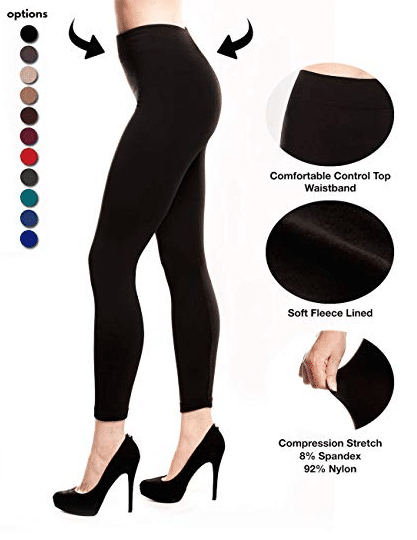Did you know that about 16 million Americans suffer from chronic back pain? The pain can cause people to miss work more often and cut back on activities.
If you have issues with chronic pain, a sports injury, or need to recover after surgery, you’re likely to seek the services of a physiotherapist.
Choosing a physiotherapist in your area isn’t that simple. You need to make sure that they meet your needs and they help you recover faster.
Read on to learn the top tips to find the best physiotherapist in your area.
What Does a Physiotherapist do?
You’re probably aware of the terms physiotherapist and physical therapy. Is there a difference between the two?
Not really.
The big difference is geographic location. Americans refer to the profession as physical therapy. Canadians, Australians, British, and New Zealanders call professionals physiotherapists.
Physiotherapists and physical therapists are experts in body movement. They are aware that pain usually isn’t isolated to one specific area.
You may experience back pain, but that doesn’t mean that you have a bad back. That pain can actually stem from weak gluteus muscles and core muscles. You can’t hold your pelvis in alignment, which puts pressure on your low back.
A physiotherapist will move beyond the pain and look for the root cause of the problem. They’ll give you exercises to strengthen and stretch areas to promote balance and healing.
Tips for Choosing a Physiotherapist
Once you understand what a physiotherapist does, it becomes much easier to find one that meets your needs. Here are some other tips to choose a physiotherapist that will give you the best treatment possible.
- Credentials and Professional Development
Rule number one when choosing a physiotherapist is to make sure they have the education, experience, and accreditation to treat you.
States and provinces have their own rules and regulations regarding physiotherapists. You can check with the board of physiotherapy or physical therapy in your area to see if the physiotherapist is registered or has any complaints against them.
They could have received their accreditation 20 years ago. They may have that many years of experience, but without development and growth, they could use outdated methods to treat your injuries.
Ask the physiotherapist how they stay up to date with the field. Do they follow physiotherapists online? Do they take classes?
You don’t need the most cutting-edge methods, but you do want a physiotherapist that’s continuing to evolve and use scientifically-backed treatment plans.
- References and Reviews
You can go to a number of places to get referrals from trusted sources. Your primary care physician is a reliable source and can refer you to practitioners in the area.
You can also get names from personal trainers, fellow athletes, co-workers, or friends.
Once you get a number of names or clinics, you can look them up online. Take the time to check out their profiles, read online reviews, and get a sense of how they operate.
- Specializations
Some physiotherapists like to work with a very specific type of clientele. They may prefer to only work with elite athletes. They may want to work with elderly people.
You may need to work with a physiotherapist that works with a broad population.
You should also check to see if they specialize in particular types of treatments. They might use laser therapy or wave therapy as part of their treatments.
Apart from working with specific demographics, physiotherapists can work with certain conditions. It’s common to see them specialize in auto accident injuries, back issues, and chronic conditions.
- Treatment Space
You want to be in a comfortable environment when you’re getting treated for pain or other ailments. You may prefer to have some privacy during your treatment sessions.
Not all physiotherapists have private treatment rooms. Some will have an open space, similar to a gym, where several physiotherapists are treating patients at the same time.
- Treatment Plans
A good physiotherapist can see the short- and long-term issues with your ailment. They can develop a treatment plan based on your injuries, pain, and experience.
For example, they may develop a 12-week treatment plan, broken into stages. They want to see how your body responds and make any adjustments.
They’ll be able to communicate the goals of the treatment plan and what you should expect. They’ll also spell out what you need to do in-between sessions.
You’ll have a number of exercises to do, and you should know how to perform them, when, and how often.
- They Handle Your Treatment
Physiotherapists have different ways of working with patients. There are some that are heavily involved with the treatment plan.
Others aren’t quite as involved. They may see you for the initial session and then have physiotherapist assistants work with you during your sessions.
It is up to you how involved you want your physiotherapist to be in your treatment sessions. If you prefer to work with the same physiotherapist in all of your sessions, be sure to say that when you first contact a physiotherapist.
You may want to work with an individual physiotherapist, in a clinic setting. A local clinic has much more than physiotherapy. There are other practitioners on-site, like chiropractors, massage therapists, and acupuncturists.
- Compatibility With the Physiotherapist
It’s a very personal choice to choose a physiotherapist. Some personalities blend well together, while others don’t. You need to make sure that you’re comfortable with the person you work with.
You’re going to be in vulnerable situations, and it’s important to be comfortable so you can talk with your physiotherapist. If you’re not comfortable, you may not share important information with them that could hamper your recovery and healing efforts.
Choose the Right Physiotherapist
It’s common to experience pain and discomfort as you get older. You may have an acute injury or need to rehab after surgery.
Whatever your needs are, choosing a physiotherapist that you’re comfortable with will help speed your recovery. These tips will help you choose the right one for your needs.
Did you find this article helpful? Head over to the Fitness Health section of this site for more healthy tips.










